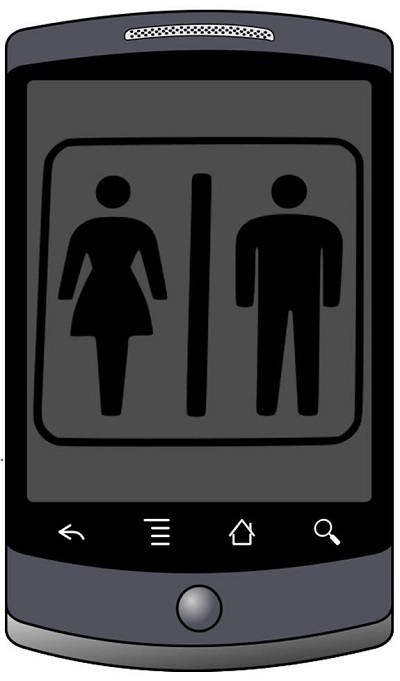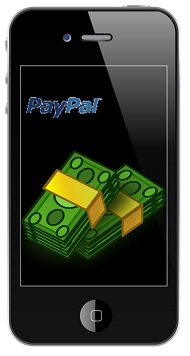If you wouldn’t touch your face to a surface in a public bathroom, then you may want to look again at your gadgets.
According to some of the information that was taken from the CES (Consumer Electronics Show), last week, mobile devices are far from being clean, and as we are currently in the middle of a heavy flu season, users may want to become aware of the fact that their gadgets are swimming with germs.
Though these gadgets may seem like our best friends, they could increase the risk of illness.
Presenters at the CES brought a technology to the show. This is far from a new theme, but the difference this year was the quantity of new sanitizing gadgets that were being presented for mobile devices such as smartphones and tablets. They pointed out that it is a very good idea to think about the fact that the devices are constantly being touched by hands, faces, purses, pockets, and a countless number of surfaces.
The hope was to draw attention to the issue of keeping mobile devices clean – and to sell gadgets to accomplish that goal.
 According to the co-founder of Phonesoap, Dan Barnes, who was present at the event and was displaying its own version of a solution to this problem, the problem is that a cell phone “is always warm, stored in dark places, so bacterias are growing on your phone.” That company’s gadget both sanitizes and charges the device at the same time.
According to the co-founder of Phonesoap, Dan Barnes, who was present at the event and was displaying its own version of a solution to this problem, the problem is that a cell phone “is always warm, stored in dark places, so bacterias are growing on your phone.” That company’s gadget both sanitizes and charges the device at the same time.
Barnes explained that the concept for his product came about after he had read a study that indicated that “mobile phones are 18 times dirtier than public bathrooms.” His product uses ultraviolet radiation in order to kill the DNA in the bacteria, which makes it impossible for it to continue living on the gadget’s surface.
There were a number of other similar products being shown off at the event, including a USB connection powered version called CleanBeats that plays music and recharges up to two devices as it sanitizes them. That product is based on NASA technology and, according to its spokesperson, Dennis Rocha, it will be sold for $499 when it hits the shelves. That is nearly 10 times the price of Phonesoap, though it does have more features and sanitize/charge twice as many mobile devices.
New mobile payments services comes to the Asian market thanks to PayPal
PayPal has launched a new mobile payments service in order to embolden its presence in the Asian market. Asia has proven quite attractive in terms of mobile commerce due to the growing degree of smartphone and tablet penetration and the increasing number of retailers entering into e-commerce. In order to tap into this promising market, PayPal has launched mo.bi.pay, which stands for “mobile built-in payments.” This new service is designed to appeal to small and medium-sized enterprises.
Asian market shows a great deal of promise when it comes to mobile commerce
Merchants throughout Asia are becoming quite interested in mobile commerce. They have found that consumers enjoy shopping from their mobile devices and those that do so tend to spend more money than those that do not. E-commerce has already won the favor of many consumers throughout Asia, particularly those in China, and this popularity has not gone unnoticed by retailers. Large retail organizations like Alibaba have made a name for themselves in the world of online shopping and are now beginning to focus on mobile commerce.
Services for small and medium-sized enterprises are currently lacking
 There are many mobile commerce services that are available for large retailers, but few of these services cater to the needs of smaller groups. PayPal intends to capitalize on this by giving small and medium-sized enterprises something they can use to engage mobile consumers more effectively. Mobile point-of-sale payments are expected to reach $5.4 billion by 2018 and PayPal is keen to ensure that it has positioned itself to take advantage of this aggressive growth in mobile payments.
There are many mobile commerce services that are available for large retailers, but few of these services cater to the needs of smaller groups. PayPal intends to capitalize on this by giving small and medium-sized enterprises something they can use to engage mobile consumers more effectively. Mobile point-of-sale payments are expected to reach $5.4 billion by 2018 and PayPal is keen to ensure that it has positioned itself to take advantage of this aggressive growth in mobile payments.
PayPal works to fend off its competition in the mobile space
PayPal now accounts for 42% of eBay’s total revenue. The company has been purchasing firms that specialize in mobile commerce and technology recently, with its most prolific acquisition being that of Braintree for $800 million. PayPal is working to establish an even stronger presence in the mobile payments space so that it can fend off competition from companies like Google and Square. While Square has focused primarily on the North American market, the company has recently expanded into Japan.
 According to the co-founder of Phonesoap, Dan Barnes, who was present at the event and was displaying its own version of a solution to this problem, the problem is that a cell phone “is always warm, stored in dark places, so bacterias are growing on your phone.” That company’s gadget both sanitizes and charges the device at the same time.
According to the co-founder of Phonesoap, Dan Barnes, who was present at the event and was displaying its own version of a solution to this problem, the problem is that a cell phone “is always warm, stored in dark places, so bacterias are growing on your phone.” That company’s gadget both sanitizes and charges the device at the same time.
 There are many mobile commerce services that are available for large retailers, but few of these services cater to the needs of smaller groups. PayPal intends to capitalize on this by giving small and medium-sized enterprises something they can use to engage mobile consumers more effectively. Mobile point-of-sale payments are expected to reach $5.4 billion by 2018 and PayPal is keen to ensure that it has positioned itself to take advantage of this aggressive growth in
There are many mobile commerce services that are available for large retailers, but few of these services cater to the needs of smaller groups. PayPal intends to capitalize on this by giving small and medium-sized enterprises something they can use to engage mobile consumers more effectively. Mobile point-of-sale payments are expected to reach $5.4 billion by 2018 and PayPal is keen to ensure that it has positioned itself to take advantage of this aggressive growth in 